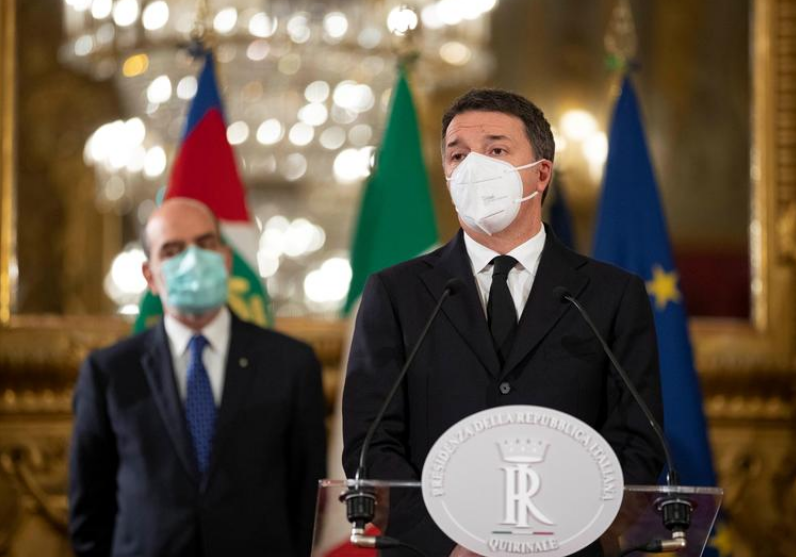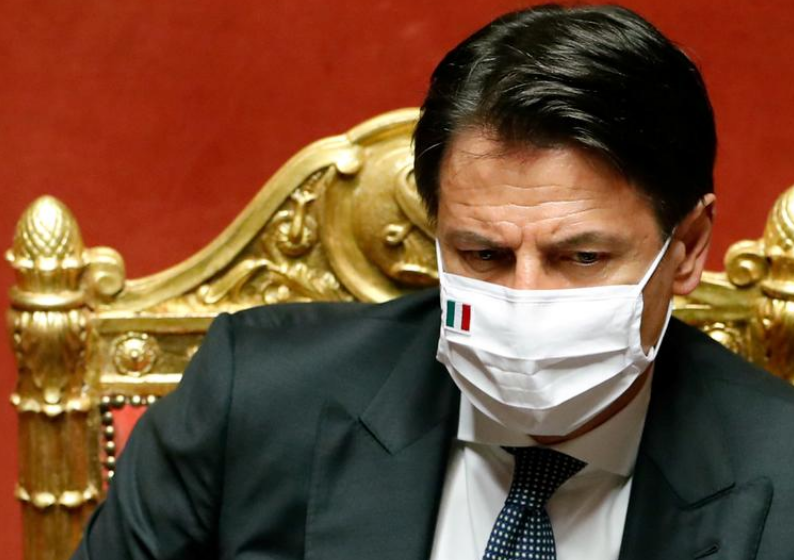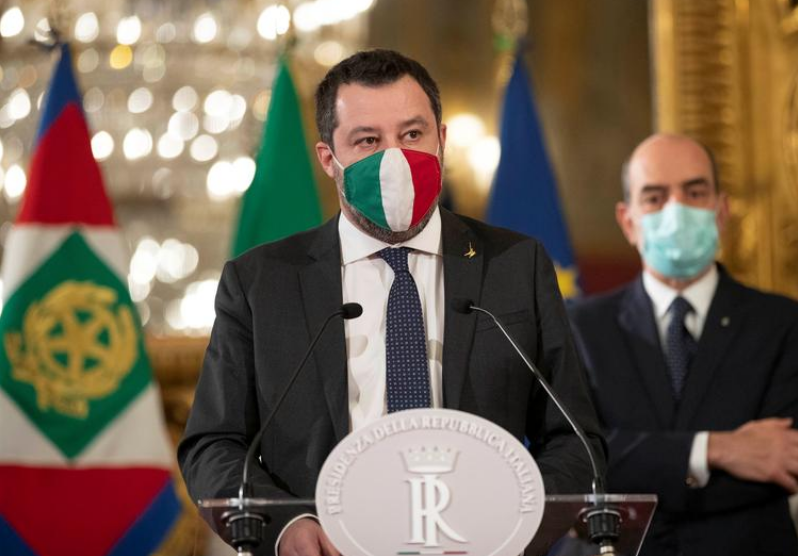
Italian President Sergio Mattarella speaks during a news conference at the Quirinale Palace in Rome, Italy, January 29, 2021. /Reuters
Italian President Sergio Mattarella speaks during a news conference at the Quirinale Palace in Rome, Italy, January 29, 2021. /Reuters
Italian President Sergio Mattarella, looking to overcome a political crisis that has brought down the government in the midst of the coronavirus pandemic, said on Friday he believed the collapsed coalition could still be revived.
Following three days of talks with party leaders, Mattarella asked lower house speaker Roberto Fico to mediate between the estranged parties, telling him to report back on Tuesday.
"It is necessary to set up a government as soon as possible," said Mattarella, adding that Italy was being severely tested by a health, economic and social emergency.
In a brief televised statement, Fico thanked Mattarella for entrusting him with the job of sounding out the members of the preceding government coalition, the center-left Democratic Party (DP), the Five-Star Movement, and the centrist Italia Viva party led by Matteo Renzi, a former prime minister.
The crisis was triggered this month when Renzi withdrew his tiny Italia Viva party from the coalition, depriving it of a majority in the upper house Senate and forcing Prime Minister Giuseppe Conte to resign.

Italia Viva party leader Matteo Renzi speaks after holding talks with Italian President Sergio Mattarella on the second day of consultations between Mattarella and political parties to try and find the basis for a new government, in Rome, Italy, January 28, 2021. /Reuters
Italia Viva party leader Matteo Renzi speaks after holding talks with Italian President Sergio Mattarella on the second day of consultations between Mattarella and political parties to try and find the basis for a new government, in Rome, Italy, January 28, 2021. /Reuters
Renzi, whose party has barely two percent of voter support, clashed repeatedly with Conte over his handling of COVID-19 and the recession, and in particular his plans for spending more than 200 billion euros ($243 billion) from a European Union fund to help Italy's virus-battered economy.
He accused the prime minister of lacking strategic vision, saying he risked squandering the EU bonanza on handouts rather than long-term investments.
Conte has tried to lure unaligned and opposition senators into the government ranks to replace Italia Viva, but has had little apparent success, meaning that if he wants to stay in office, he will almost certainly need Renzi's help.
Five-Star ructions
Conte has no party affiliation but is close to the largest coalition group, the anti-establishment Five-Star Movement, which said it wanted nothing more to do with Renzi, but in a U-turn, the Five-Star leader offered to try and mend broken ties.
"We expressed our willingness to ... (create) a political government that takes as its starting point the coalition forces that have worked together over the past year and a half," Five-Stars' Vito Crimi said on Friday after seeing the head of state.

Italian Prime Minister Giuseppe Conte attends a session of the upper house of parliament in Rome, Italy, July 28, 2020. /Reuters
Italian Prime Minister Giuseppe Conte attends a session of the upper house of parliament in Rome, Italy, July 28, 2020. /Reuters
However, he also insisted that Conte had to stay on as prime minister, something Renzi has so far refused to endorse.
The decision to offer Renzi an olive branch went down badly with hardline Five-Star members, who have heaped abuse on the former premier over the past two weeks.
"I see that the (Five-Star) position has changed. I have not changed my position," said one of the movement's leading lights, Alessandro Di Battista. "If the movement goes back to its old position, I'm in. Otherwise, it is goodbye and thank you."
Di Battista is not in parliament and it was not immediately clear how many lawmakers might follow him out of the party if Crimi goes ahead and forges a new alliance with Renzi.
The other main ruling group, the center-left Democratic Party, is also backing Conte to get a fresh mandate but the prospect is far from certain unless Renzi and he both agree to patch up their policy differences and mutual recriminations.

League party leader Matteo Salvini speaks during a news conference at the Quirinale Palace in Rome, Italy, January 29, 2021. /Reuters
League party leader Matteo Salvini speaks during a news conference at the Quirinale Palace in Rome, Italy, January 29, 2021. /Reuters
Earlier in the day, the rightist opposition alliance led by Matteo Salvini's League, which leads in opinion polls, told Mattarella it wanted snap elections two years ahead of schedule.
When Mattarella hears back from Fico, who is a Five-Star politician, the president could ask a new candidate with more parliamentary backing than Conte to try to form a government or meet Salvini's request for a vote.
Most analysts believe he will only do this as a last resort.
Conte, a once-obscure law professor, has already led two governments of different political shades since taking office after the 2018 general election.
The first was a fractious populist coalition between Five-Star Movement and Salvini's far-right League, which ended when the latter pulled out in August 2019.
Conte went on to preside over another unlikely coalition, the so-called Conte II government, between the Five-Star Movement and the DP, two former sworn enemies, and Renzi's Italia Viva.
(With input from agencies)

